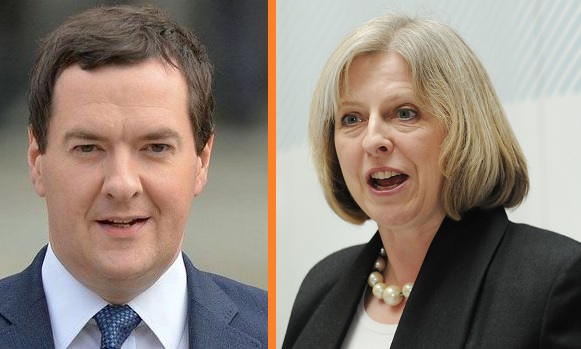Rules announced by the Home Secretary to combat foreign extremism such as the fundamental Islamism of ISIS and Boko Haram could instead be used to suppress legitimately held religious and social views of Christians or even atheists in Britain, it has emerged.
Extremism Disruption Orders (EDO) were mooted at the Conservative party conference in September as a modern form of control over the ability of extremists to gain publicity for their cause by appearing on television or in print. Similar restrictions were enacted during the British internal conflict in Northern Ireland in the last century, where figures from Sinn Féin and other involved groups were placed under a ‘broadcast ban’, preventing them from speaking on television or radio.
The new EDO will go further, and will prevent extremists from even using social media such as Twitter, Facebook and YouTube, broadcasting on television, or even protesting in public without permission from the Government.
Writing about plans for the laws, which are presently set to be included in the forthcoming general election manifesto by the Conservatives, chancellor George Osborne made some concerning revelations in a letter to a constituent seen by the Daily Telegraph. The chancellor said that the laws would not stop at the Islamic extremism presently being fought at home and abroad, but would seek to “eliminate extremism in all its forms”, specifically targeting those with unfashionable opinions but who haven’t broken any laws.
The chancellor said in his letter that the orders would be used to prevent people broadcasting opinions that “justify hatred” against people for reasons of religion, sexual orientation, gender, and disabilities, effectively outlawing impassioned debate on some of the biggest issues of today.
The Christian institute, a pressure group that works to protect Christians from unwanted intrusion from the government was critical of the move. Speaking out on the matter, their deputy director Simon Calvert said this catch-all law could ensnare Christians with traditional views on gay marriage, or even those who don’t accept religious pluralism. He said: “Anyone who expresses an opinion that isn’t regarded as totally compliant with the Equality Act could find themselves ranked alongside Anjem Choudary, Islamic state or Boko Haram”.
Pointing out that ‘hatred’ is subjective and a word that tends to be thrown around quite carelessly, Calvert said: “How many times a day do intellectually lazy political activists accuse their opponents of ‘spreading hatred… The left does it, the right does it, liberals do it, conservatives do it, it is routine.
“Hand a judge a file of a thousand Twitter postings accusing this atheist or that evangelical of ‘spreading hatred’ and they could easily rule that an EDO is needed… It’s a crazy idea – the Conservatives need to drop this like a hot brick”.
Unusually the National Secular Society, a group that exists to “challenge religious privelege” and normally wouldn’t have much in common with the Christian institute seemed to support their view. A spokesman said: “Without precise legislative definitions, deciding what are ‘harmful activities of extremist individuals who spread hate’ is subjective and therefore open to abuse now or by any future authoritarian government”.
Rejecting the criticism, a Conservative spokesman said “We have never sought to restrict peaceful protest or free speech, provided it is within the law”, however as this law would target those who have not broken the law, merely engaged in what is called subjectively ‘hate’, the exact criteria for offending is uncertain.
This is not the first time in recent weeks the Christian institute has spoken out against laws ostensibly introduced to defeat Islamism which have been turned on Britain’s Christians. Breitbart London reported last month on new rules to enforce “British values” in state schools after the ‘Trojan horse’ scandal was being used to persecute a Christian school which had failed to live up to ‘modern’ British values, by not inviting a Muslim Imam in to teach lessons. A government spokesman said the change in rules was essential to ensure Britain’s youth left school “well prepared” for “life in modern Britain”.

COMMENTS
Please let us know if you're having issues with commenting.